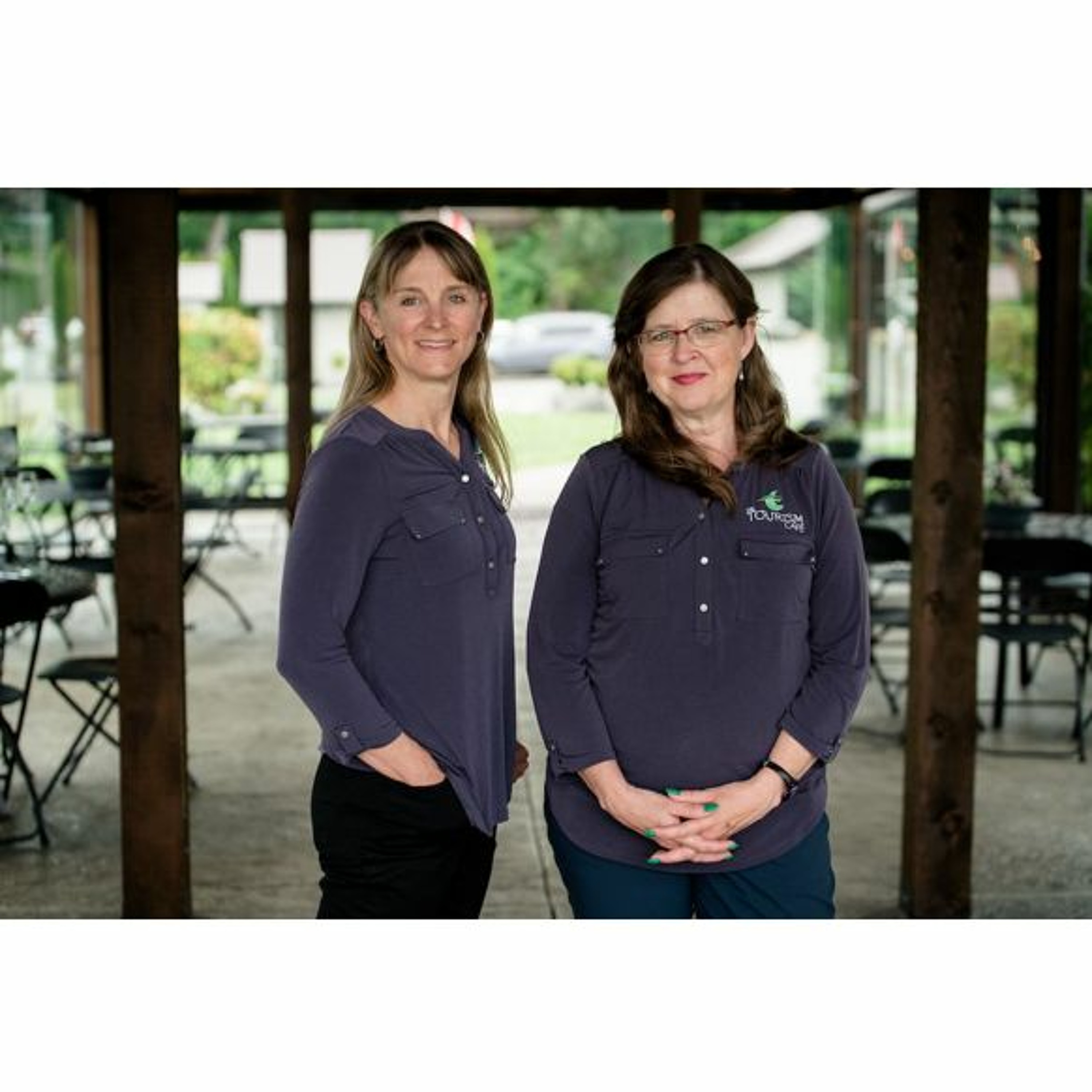Seeking Your Input For A New Vision Of Tourism On Cortes Island
- Author
- roy.hales9.gmail.com
- Published
- Thu 12 Oct 2023
- Episode Link
- https://soundcloud.com/the-ecoreport/seeking-your-input-for-a-new-vision-of-tourism-on-cortes-island
Roy L Hales/ Cortes Currents - Leslie Anderson and Nancy Arsenault are bringing a new vision of tourism to Mansons Hall on Monday, October 23rd and Gorge Hall the following day.
“The old model of tourism where you just focused on the visitors doesn't work. How do you uild tourism for the benefit of all and not just the visitors? How can tourism, the dollars that it brings, the amenities and infrastructure that can be brought benefit residents first, along with the visitors. How do you build it based on what residents are looking for? It's a new lens and it's called regenerative tourism,” explained Anderson.
She and Arsenault belong to Tourism Cafe, a Vancouver Island based business, which offers clients across Canada anything from short e-courses courses to lengthy in-person programs.
"We're a dispersed team. We have one employee who lives in Toronto, two who live in the Williams Lake -108 mile area, myself in Nanaimo, and then Paul and Nancy are in Comox. We all work from home, and meet on Zoom.”
“ Tourism Café has been contracted by the Cortes Community Economic Development Association (CCEDA) and our goal in coming to the island is to gather input and Feedback from the community that will help to inform a new community tourism plan for the island. We want to have an opportunity to chat with the residents, and businesses who have an interest in the future of tourism on the island, to hear what they have to say, so that can be incorporated and taken into consideration as the plan is put together.”
“We invite everyone to come and be part of the process. Take part in the engagement sessions that are happening on October the 23rd and the 24th. So that we can hear the input, hear the perspectives and take all of that into consideration as we put that plan together.”
CC: Why do we need a plan?
LA: “I think that residents and businesses gain from the implementation of a well thought out tourism plan because it looks at the opportunities for growth while taking into consideration all of the environmental, social, cultural impacts of tourism on the island and its residents. It's better to think about what we want, and how we plan for it, rather than to just let it happen haphazardly.”
“Going through the process of creating a plan provides an opportunity for input on what are the current challenges. What are the priorities for the future investment of the time and resources that represent this economic opportunity for the island again.”
CC: What about people who don't want to see more tourism?
LA: “In all the communities we’ve been in, there is always some contentiousness around tourism. There are always varying opinions about how much tourism residents and communities want to have, because some folks rely on tourism for their livelihood and other people don't. Those who rely on tourism often would like to see more. Others may not wish to see it.”
“It’s important to hear all perspectives from residents and businesses because we know, particularly in small communities, that tourism can be both a blessing and it comes with its challenges. So we want to hear what are some of the challenges that the residents feel exist with tourism at the current time.”
“Visitors are going to come to the island regardless. How might you create areas where visitors are welcome to go? And areas where visitors aren't welcome to go? We know that residents want to save areas for themselves and we know that maintaining the way of life Is really important. We hear that in many communities.”
CC: How would you gauge whether at the end of this process, the community has more of a collective vision or not? Is there a way to gauge it?
LA: “The more people who come and engage in the process, the better that vision is reflective of the islanders and the community itself. So hopefully, we'll get a lot of people out and who want to take part in the process and have their say.”
